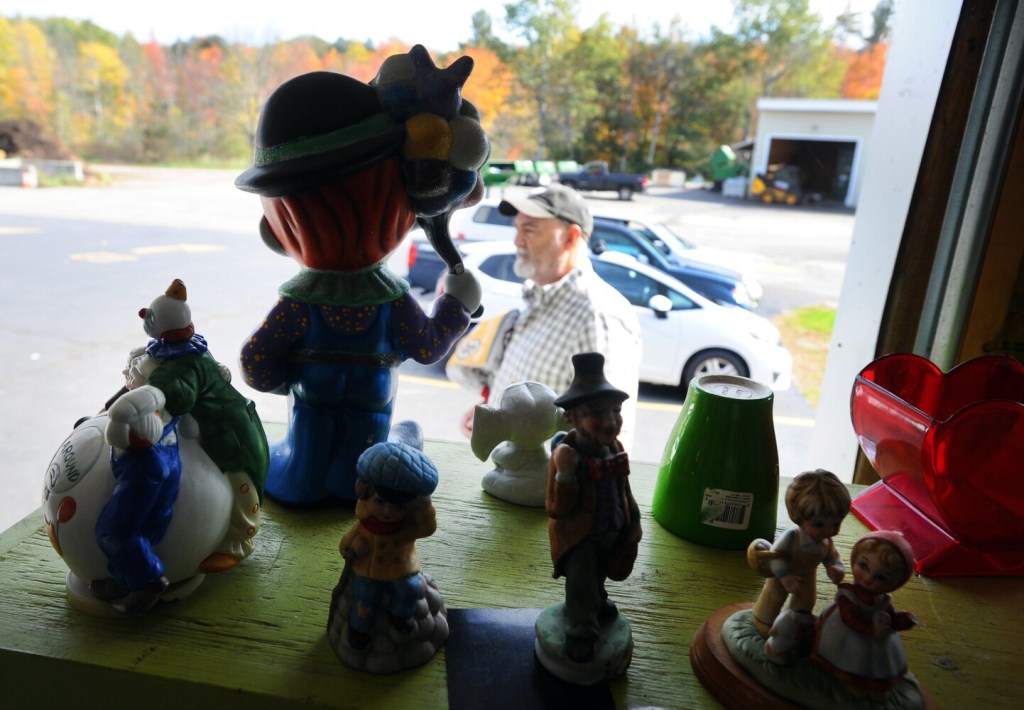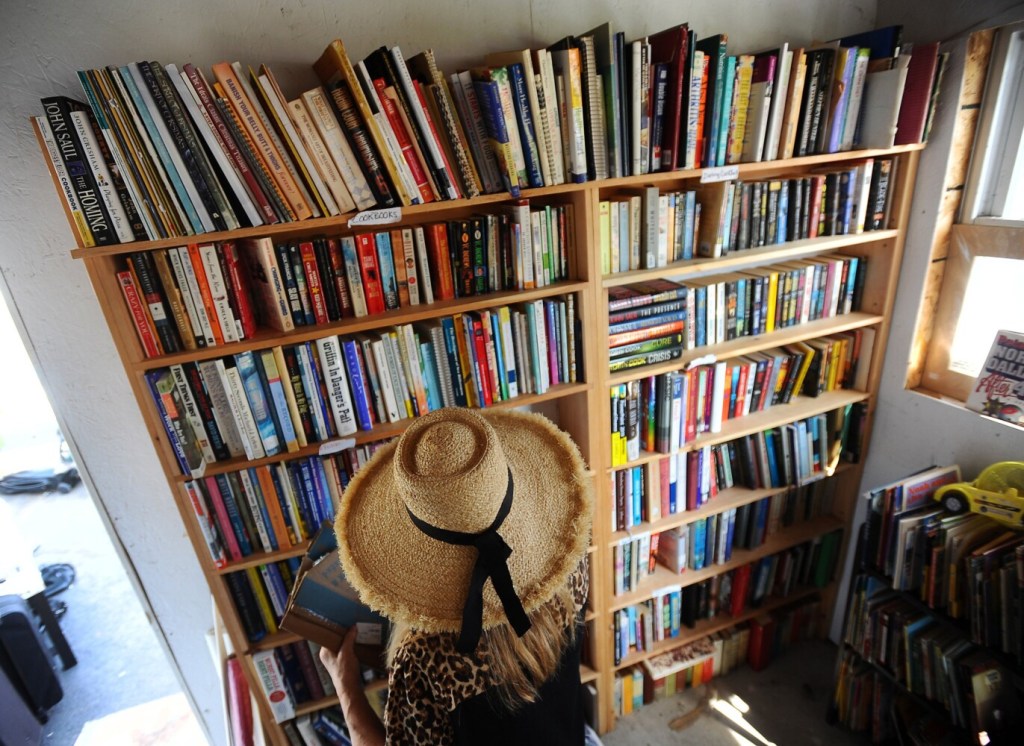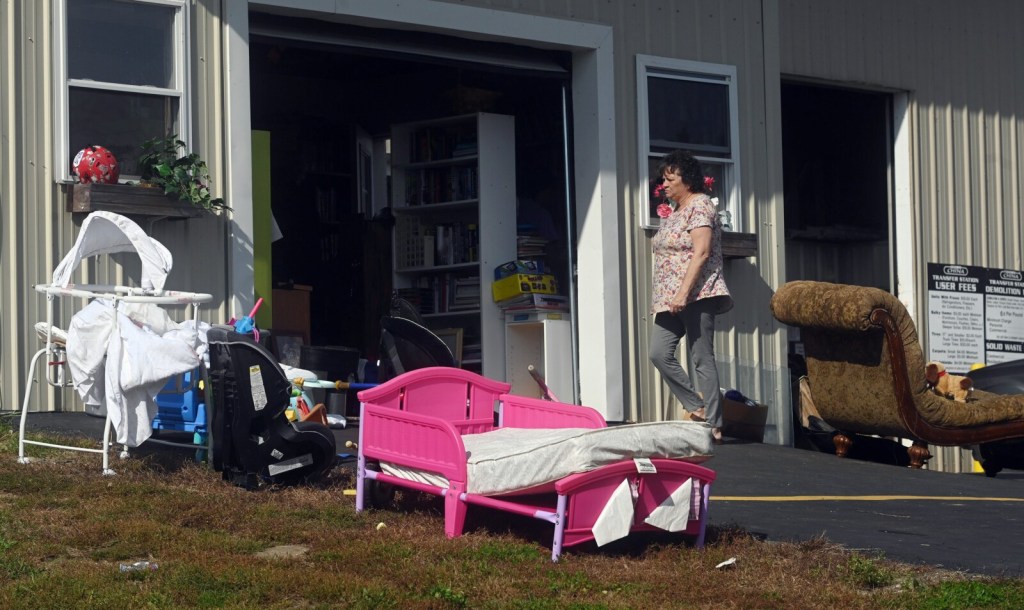A green and white sign by the road near the transfer station in China says, “Recycling Saves Tax Dollars.”
Indeed, the station has a big building devoted to recycling and there are organized compartments for metals and other items, but the more compelling operation takes place in a little wooden building designated as the give-and-take shack.
I discovered it this summer, after many years of spending the warmer months at our house on China Lake.
I’ve been to the transfer station lots of times with my husband, Phil, and while I noticed the shack seemed a popular place, I never gave it much thought.
Until a June day when Phil spied an old friend he hadn’t seen in a few years, poring over the stuff people drop off there — dishes, chairs, tables, lamps, vacuum cleaners outside, and many shelved books and household items inside. There’s also always a good supply of children’s toys, both small and large, near the shack.
As Phil chatted happily with his friend, I perused things people discard — artwork, picture frames, coffee pots, kitchen utensils, Christmas decorations and anything else you can imagine.
A volunteer was darting here and there, righting overturned items, sifting through boxes and re-arranging books into fiction, nonfiction, self help and cookbook categories. She was friendly, conversing with people coming and going, thanking them for their donations and suggesting they check out this new item or that.
It was just like a regular store, except no money was exchanged and the workers, mostly women, clerk for free. One day there was no volunteer and the place was in disarray, so I spent a half hour cleaning up.
I told a friend who lives in China that I had discovered the give-and-take shack and he quipped, “Ohhh, that’s a dangerous place.”
“What do you mean?” I asked.
“My kids go nuts there,” he said. “I had to tell them if they plan to take something, they must bring something from home.”
Children have fun at the give-and-take shack, poring over all the big toys. I’m typically perusing the books so don’t necessarily see them, but one day I heard a little girl exclaim, “I love the transfer station.”
On another day I scored a small wooden end table that was probably 75 years old but in good shape and just the right size for a space I needed to put it in the camp. I brought it home, scrubbed it with Mr. Clean, placed a white doily on its surface and set a reading lamp on top. Perfect.
I wouldn’t describe ourselves as minimalist, but we try not to pack every space with stuff like our grandparents and parents did. They lived through the Great Depression and were reluctant to part with things. My mother seemed to keep everything, right down to unused balls of twine, slats from chairs, glass jars, even partial skeins of mismatched yarn she sealed in plastic bags and packed in a box in the attic.
Sometimes I could talk her into discarding something, but her usual directive was, “Take it up to the attic — we might need it someday!”
I’m more inclined to slough off unused things. Phil’s mantra is, “Bring something into the house, take something out.”
We’re pretty good about not acquiring items from the dump, but sometimes there are treasures you just can’t walk away from.
Like the four beautiful, vintage martini glasses with gold trim and ornate stems that Phil admired, though neither of us drinks martinis.
But like my mother, we rationalized that we might need them one day. After all, you never know when a friend might drop by, craving a martini, right?
Amy Calder has been a Morning Sentinel reporter 33 years. Her columns appear here Saturdays. She may be reached at acalder@centralmaine.com. For previous Reporting Aside columns, go to centralmaine.com.
Send questions/comments to the editors.






Comments are no longer available on this story